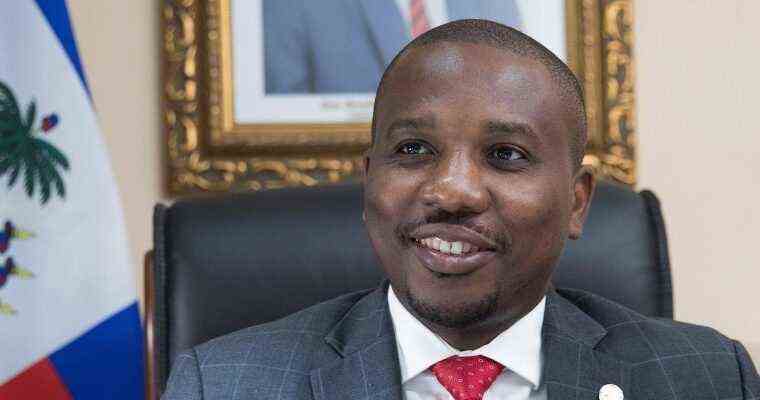When Claude Joseph said on Wednesday of this week that the police had the situation in Haiti under control, it probably sounded like mockery to many people in the Caribbean country – the bitterly poor country has long been sinking deeper into chaos.
Since the beginning of this week at the latest, the situation has now threatened to get completely out of control: A group of heavily armed attackers attacked the private residence of President Jovenel Moïse on Wednesday night. The head of state was killed and his wife shot. Who is behind the murder has not yet been clarified, just as it is unclear who is actually in power in Haiti.
According to the police in Haiti, 26 Colombians and two Americans of Haitian origin were involved in the act. Of these, 15 Colombians and the two men with US citizenship were arrested, said interim police chief Léon Charles on Thursday evening. He and Claude Joseph appeared in front of the cameras in the main building of the National Police in the capital Port-au-Prince on Thursday.
The South American country’s defense minister, Diego Molano, said in a video address that the alleged persons responsible for the attack were, according to initial information, former members of the Colombian army.
Police chief Charles said three Colombians were killed and eight were still on the run. Those arrested were also shown at the event – sitting on the floor with handcuffs on. Some of them were visibly injured. On a table were items that had been confiscated: automatic weapons, machetes, sledge hammers, Colombian passports and cell phones.
Claude Joseph had declared himself interim president the day before – immediately after he had informed the public about the murder of Moïse and shortly before he imposed a state of siege on the country. “Let’s look for harmony in order to move forward together so that the country does not run dry in chaos,” said Claude Joseph in a televised address.
All of this raises questions, especially because it is not at all clear whether the man even has the authority to form a transitional government.
There was no longer any handover to the successor
Little is known about Claude Joseph, not even his age is certain. He is said to have studied politics in the USA, later he became Haitian ambassador to Argentina, and he also worked as a diplomat in Spain. He was appointed foreign minister in early 2020, and when the prime minister resigned in April that year, Joseph moved up. However, he only stayed in office for a short time. After only three months, Claude Joseph was to be replaced again, President Moïse announced this on Monday and appointed a respected doctor as his successor.
But there was no handover. Instead, Moïse was dead on Wednesday morning – and Claude Joseph was suddenly head of a self-appointed transitional government.
If the situation was confusing before, it is now completely confused and chaotic. Jovenel Moïse took office in 2017 after elections that had to be repeated because there were so many disagreements in the first round. As a result, allegations of corruption increased, at the same time Moïse delayed the parliamentary elections that were actually due. The result: it had no longer had a mandate since 2020. The further consequence: the president ruled by decree. Observers feared that the country was on the way back to dictatorship.
After the murder of Moïse, there is now neither a president nor a parliament in Haiti. And to top it all, the chairman of the Supreme Court died of Covid-19 in June.
Now the people in Haiti are wondering how things will go with their country. The President of the Senate could take over government affairs. A constituent assembly could also be set up, as the opposition has long called for. This would give Haiti a new political base, and the crisis would become an opportunity.
At the same time, Claude Joseph would have to ensure that new elections were scheduled if he took the first part of the word “interim president” seriously. So far, however, he has not indicated that this is a matter of concern to him; so there is already concern that the transitional government might try to cling to its newfound power.
Haiti’s election minister Mathias Pierre has stated that both the presidential election and the constitutional referendum should take place on September 26th as planned. “The election was not for Jovenel Moise as president. It was seen as a necessity to stabilize the country and the political system,” said Pierre. The assassination of the Haitian president has nothing to do with it. He added that preparations were well underway and millions of dollars were being spent to hold the elections.
Nonetheless, Haiti could plunge even further into chaos, with calls for the international community to intervene from the opposition. From which one can conclude: Nobody has the situation in Haiti under control at the moment. But on the contrary.

